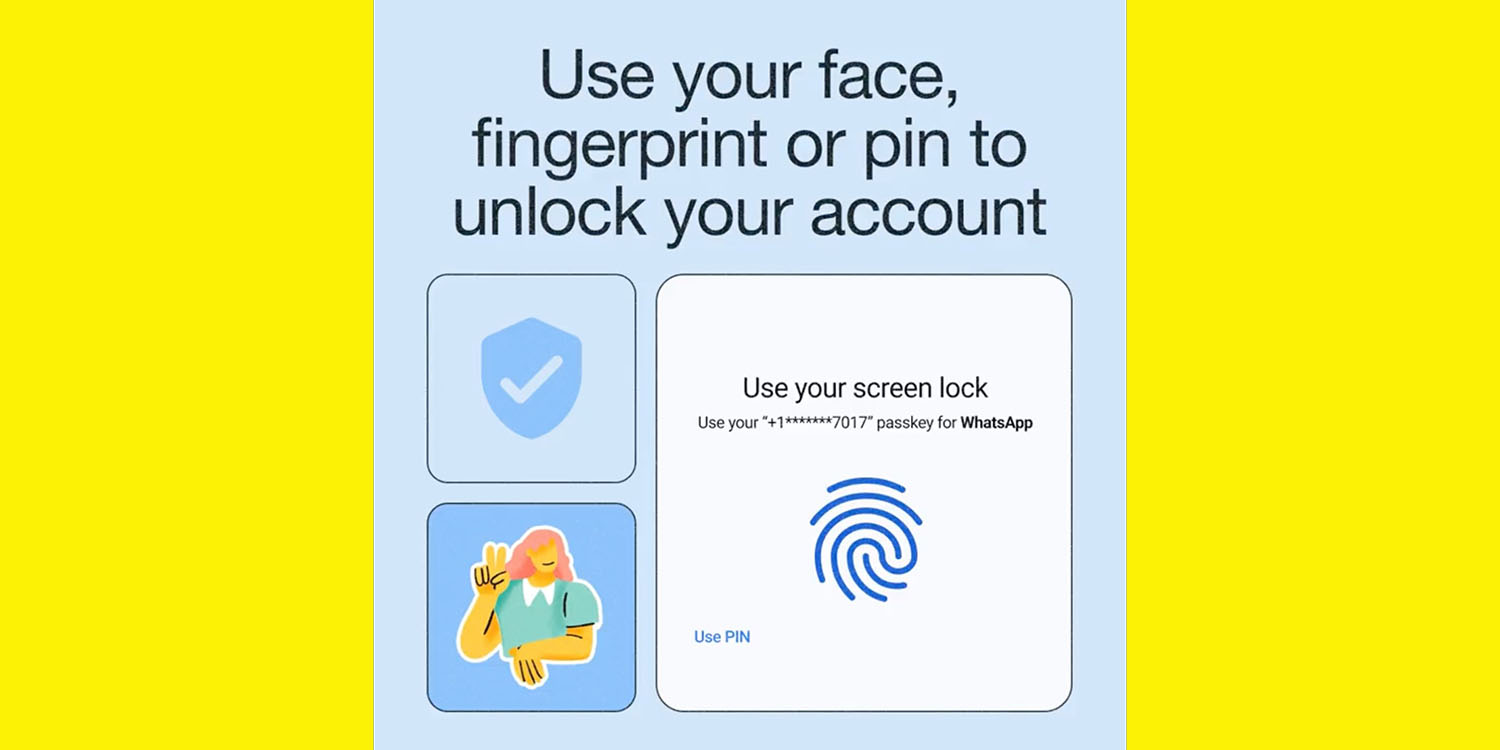
WhatsApp passkeys are on the way, says the developer, but the security feature will be rolling out to Android users ahead of iPhone owners.
Once it does reach iPhone, however, you’ll be able to ditch your password or passcode and simply use Face ID or Touch ID to authenticate …
Passkeys are gradually replacing passwords
Of course, we can already store passwords in our Keychain to login to websites and apps with Face ID or Touch ID, but while the experience may look much the same to users, what’s going on under the hood is very different.
With passkeys, there is no username and password. Instead, you have a public key and a private key, neither of which need be known to you.
When you set up a passkey, your public key is handed over to the app or website. When you log in, the service will ask your device to confirm your identity. Your iPhone, iPad, or Mac then uses Face ID or Touch ID to authenticate you, and then simply tells the service that it has confirmed your identity. The service trusts your device because it knows that authentication was carried out locally.
Aside from users never having to remember a password, the other big benefit is security. Your login details can never be obtained by hackers in a security breach because the website or app has no idea what your private key is. And phishing attempts will fail because your device won’t prompt you to log in unless it receives your public key from the correct service.
Passkeys are now getting a much higher profile, as iOS 17 and macOS Sonoma automatically create passkeys for your Apple ID, and just in the past few days Google has started proactively promoting users to setup passkeys.
WhatsApp passkeys
We first spotted signs of upcoming WhatsApp passkey support back in the summer, and the developer has now officially confirmed that this is on the way.
Android users can easily and securely log back in with passkeys
only your face, finger print, or pin unlocks your WhatsApp account
While the tweet implies that it is available today, The Verge reports that it’s a gradual rollout across “the coming weeks and months.”
iOS support likely to follow soon afterward
While it’s more common for developers to have an iOS-first approach to new features (and, indeed, to new apps), WhatsApp takes the opposite approach, launching first on Android.
While it hasn’t mentioned iOS, that too is normal – so we can expect WhatsApp passkeys to roll out to iPhone not too long after Android.
Add 9to5Mac to your Google News feed.
FTC: We use income earning auto affiliate links. More.







